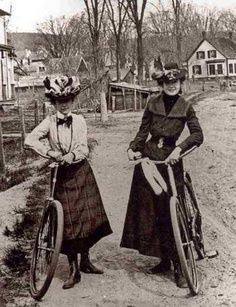Summer afternoon--summer afternoon; to me, those have always been the two most beautiful words in the English language.
So wrote Henry James in An International Eposiode.
I have a confession: For a semester in college, I couldn't decide which I hated more: James' The Wings of the Dove or the professor who assigned it. Or maybe I hated Henry James even more because, well, at that time I had to hate (or, at least, make some gesture of rebelling against) something. It was easy to rationalize a distaste for his work: the sentences were long and the stories seemed to be about a bunch of upper-class twits. I mean, to a kid from a working-class Italian-American family in Brooklyn and New Jersey, it seemed that those folks--and, perhaps James himself--simply had too much time on their hands.
Of course, you know that if you hate something enough when you're young, at some point later on, you'll go straight for it. For me, it actually didn't take very long to change my opinion about James: a few months later, I found myself reading some essays, and still later novels, by James Baldwin. He grew up poor in Harlem, so it was easy for me to feel sympathy for him. The funny thing is that, in style, no American writer is more similar to James. And, I had to admit to myself that it was exactly what I liked about his writing. Then, wonder of wonders, I came across a Baldwin essays in which he cited James as an influence.
So, to my way of thinking at that time, if Henry James was good enough for James Baldwin, he would suit me just fine.
Besides: How could I hate a writer who could come up with a sentence like the one at the beginning of this post?
During yesterday's ride--to Connecticut--I could see what he meant. Blue sky, full trees and flowers, all so serene. Who couldn't find beauty in that. And, the sound of the two words echoes the feeling very well.
Who wouldn't ride to the sight--or sound--of a summer afternoon? Sometimes I think Arielle, my Mercian Audax, responds to such things as much as I do!
So wrote Henry James in An International Eposiode.
I have a confession: For a semester in college, I couldn't decide which I hated more: James' The Wings of the Dove or the professor who assigned it. Or maybe I hated Henry James even more because, well, at that time I had to hate (or, at least, make some gesture of rebelling against) something. It was easy to rationalize a distaste for his work: the sentences were long and the stories seemed to be about a bunch of upper-class twits. I mean, to a kid from a working-class Italian-American family in Brooklyn and New Jersey, it seemed that those folks--and, perhaps James himself--simply had too much time on their hands.
Of course, you know that if you hate something enough when you're young, at some point later on, you'll go straight for it. For me, it actually didn't take very long to change my opinion about James: a few months later, I found myself reading some essays, and still later novels, by James Baldwin. He grew up poor in Harlem, so it was easy for me to feel sympathy for him. The funny thing is that, in style, no American writer is more similar to James. And, I had to admit to myself that it was exactly what I liked about his writing. Then, wonder of wonders, I came across a Baldwin essays in which he cited James as an influence.
So, to my way of thinking at that time, if Henry James was good enough for James Baldwin, he would suit me just fine.
Besides: How could I hate a writer who could come up with a sentence like the one at the beginning of this post?
During yesterday's ride--to Connecticut--I could see what he meant. Blue sky, full trees and flowers, all so serene. Who couldn't find beauty in that. And, the sound of the two words echoes the feeling very well.
Who wouldn't ride to the sight--or sound--of a summer afternoon? Sometimes I think Arielle, my Mercian Audax, responds to such things as much as I do!



